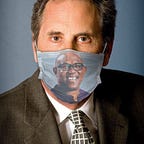Abuses at Penn State
This article was originally published in the November 2011 issue of Counseling Today.
It’s easy for some people to see that individuals who commit the heinous act of child sexual abuse are monsters. But human problems seldom, if ever, occur in isolation. Rather, they usually occur in context. And so is the case of the Penn State child sex abuse scandal.
According to linguist and social activist Noam Chomsky, some people lose sight of important, sometimes critical issues as a result of mindless devotion to an organization. Irrational subservience often contributes to individuals becoming apathetic, distracted, and diverted.
Consider the role that spectator sports plays for so many people in our culture. Sports fans root, root, root for the home team — no matter what. In some cases a fan might hardly know some players on their team, yet they’re allegiance is unwavering.
On November 9, 2011, a throng of Penn State football fans rallied to support coach Joe Paterno when he announced, amidst the child sex abuse scandal, that he would retire at the end of this season. This occurred one day before Paterno would be fired by Penn State’s board of directors. Distracted by their fanatical devotion to Paterno and the Penn State football team, those fans failed to see how their reactions were inappropriate.
The next day, when news of Paterno’s firing was announced, some fans rioted. But their anger was misdirected; it should have been channeled toward the perpetrator of the child sex abuse as well as those involved in its cover-up. Again, some fans were confused and misguided as a result of their irrational devotion to the team.
But there was another, even more pernicious example of mindless devotion at Penn State.
The failure of multiple Penn State employees to report the child sex abuse to authorities was also an abuse, an abuse second in severity only to the child sex abuse, itself, that occurred at this institution.
How could this happen!?
With the investigation still underway, one can only speculate. Perhaps the employees’ irrational devotion to their organization played a significant role. It may have been a fear of retaliation. A fear of tarnishing the Penn State brand may also have contributed to the cover-up.
In the weeks that transpired since the scandal broke, it has been argued that current laws, such as state laws in Pennsylvania, are inadequate because they do not mandate all employees to report child sex abuse. Although much legislative work needs to be done in this area, I take the position that all citizens should be expected to immediately report any suspicions of child abuse to authorities — law or no law. I would think any reasonable person can see this.
The cover-up at Penn State was wrong. Also dangerous was that the cover-up seemed to develop within a cohesive organization. Dynamics similar to this play out all the time in all types of organizations (e.g., business, education, family, work), but usually of much less consequence.
The question at hand is when and how does one choose to participate in a world of covert operations, double standards, and secrets? Sometimes it’s difficult to decide. At other times, such as when child abuse occurs, the choice should be clear. As citizens of the world, all of us need to swiftly identify and eliminate threats to human dignity, freedom, and well-being.
I am afraid that unless our society makes significant changes now, we may look back at these times and tragically conclude that we failed to protect many of our children. But it’s not too late! Our profession could play a significant role in the solution by continuing to raise public awareness, provide education, and offer counseling services related to child sexual abuse, trauma, and healing. In addition, the counseling profession has a responsibility to continue taking a leadership role in developing social advocacy strategies aimed at improving legislation and public policy. We also need to work at the grassroots level to help individuals and organizations act against the type of abuses that occurred at Penn State.
